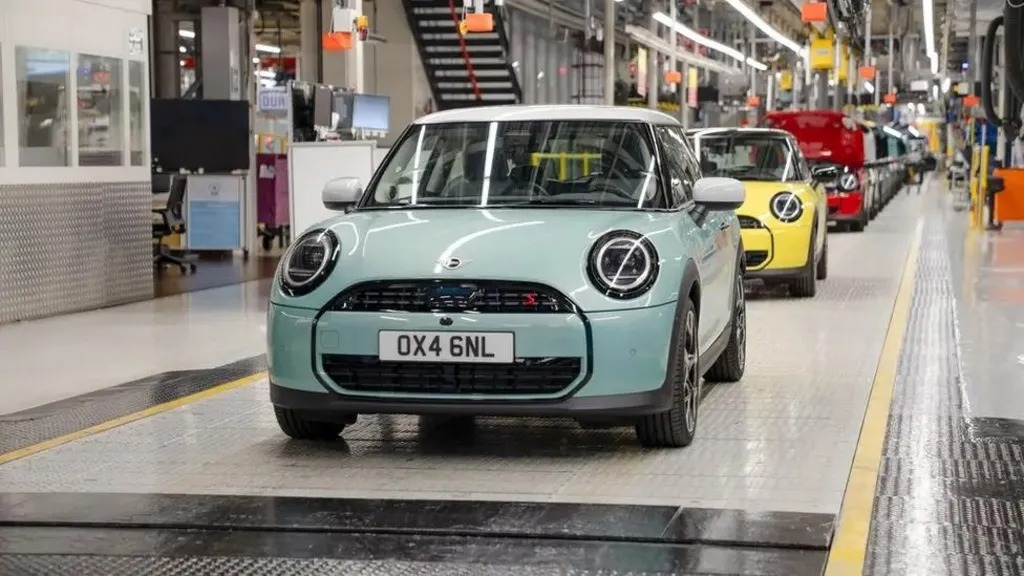
BMW Electric Mini Delay Shakes Oxford
On February 22, 2025, BMW confirmed the BMW electric Mini delay, halting a £600 million upgrade at its Oxford Cowley plant to restart electric vehicle (EV) production. Citing “multiple uncertainties” in the automotive sector, the firm paused plans to build two new electric Mini models by 2026, opting not to take a £60 million UK government grant. BMW’s statement emphasized Oxford’s role as Mini’s production heart, exporting globally, but flagged industry turbulence as the driver. It remains in “close dialogue” with the government, despite shelving the funds, as construction—like a new logistics hub—rolls on to future-proof the site.
The UK’s zero-emission vehicle (ZEV) mandate, pushing carmakers to hit EV sales targets, lies at the core of this friction. BMW joins a chorus—including Stellantis, which shuttered its Luton van plant in November 2024—arguing the quotas are too steep for 2025 and beyond. A fast-track government review earlier this year hinted at tweaks, but uncertainty lingers. BMW’s 2023 pledge to pour hundreds of millions into Oxford for electric Minis now wavers, a blow to the plant’s EV ambitions amid a broader industry tussle with policy makers.
BMW Electric Mini Delay: Policy Clash Unveiled
The BMW electric Mini delay reflects deeper UK auto woes. The Department for Transport (DfT) defends its £2.3 billion EV push, claiming most manufacturers back the 2030 deadline and are on track for ZEV goals. Yet, BMW’s step back—forgoing £60 million—signals doubt. Stellantis’s Luton closure blamed the same mandate, costing jobs and output. BMW insists Oxford’s upgrades, like state-of-the-art facilities, continue, but the EV timeline shift underscores a rift: carmakers balk at aggressive targets as demand and infrastructure lag. The DfT’s “listening” stance and consultation on reinstating 2030 goals offer hope, but clarity’s elusive. For more, see BBC or Kenkou Land.
Main Body: Uncertainty Stalls a Green Pivot
The BMW electric Mini delay, announced February 22, 2025, at 7:53 PM PST, jolts Britain’s EV transition. Oxford’s Cowley plant, a Mini mainstay, was set to electrify with a £600 million revamp—two models slated for 2026. Now, “uncertainties” like the ZEV mandate, shaky consumer uptake, and global supply snags halt that dream. BMW’s grant refusal—£60 million spurned—nods to fiscal caution, yet its “close dialogue” with the UK hints at wiggle room. Construction hums on, but the EV pause stings a sector desperate to go green under pressure.
The DfT touts £2.3 billion to ease the shift, but BMW’s retreat echoes Stellantis’s exit—Luton’s 1,200 jobs lost to mandate gripes. Carmakers cry overreach; quotas outpace reality. Today, at 7:53 PM PST, the delay exposes a policy tangle—2030 looms, yet industry and government misalign. Oxford’s fate teeters—will BMW recommit, or drift further from electric dreams? Jobs, exports, and Britain’s green cred hang in the balance as talks drag on. Uncertainty reigns, and Mini’s electric future dims for now.



